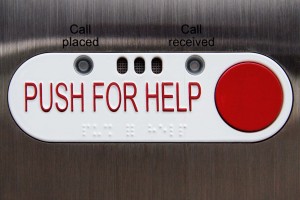
Throughout life, unforeseen circumstances and unfortunate emergencies will interrupt your daily activities. This is a fact that is no different for medical students. Yet when a crisis occurs, it can have an enormous impact on your money and even your eligibility for financial assistance.
If the worst does happen, it’s important not to panic. You have resources available and there are professionals you can talk to that can provide you with the assistance you need.
What to do When the Worst Happens
Your original eligibility for financial aid is calculated based on the information you gave on the Free Application for Federal Student Aid form. When emergencies happen, they can have a dramatic impact on your current and future financial state. Medical expenses, job loss and even your partner’s loss of employment can affect your situation in a major way.
Once the worst has happened, you should contact a financial aid administrator as soon as you possibly can. Financial aid administrators are given the power to make adjustments to agreements due to the Higher Education Act. Those in need of help or assistance must provide administrators with proper documents.
For example, if you were relieved of your duties at work, you must show administrators documenting the event. You may be required to show other proof of the incident, such as your final pay stub.
Nearly all schools have a process in place to handle these types of situations. You can speak to an advisor to get an overview of the school’s unique process and all that it involves. An advisor can also tell you all the documents you will need to gather for your specific case.
Documents may be reviewed annually and all outcomes are determined on a case-by-case basis. All decisions are final and there is no appeals process. Again, speak to an advisor before proceeding with any action.
